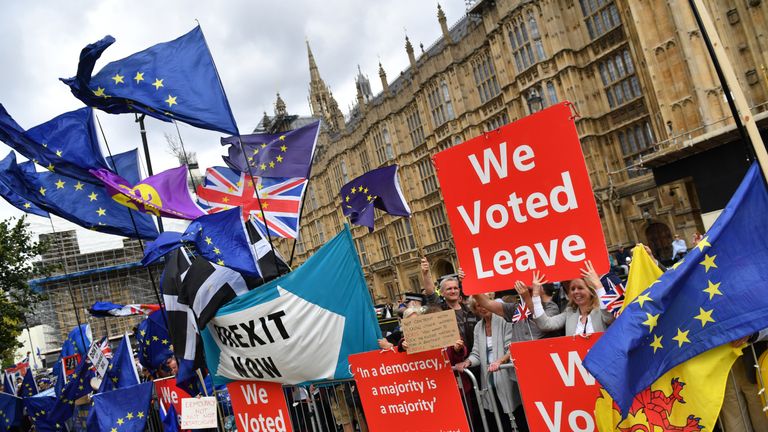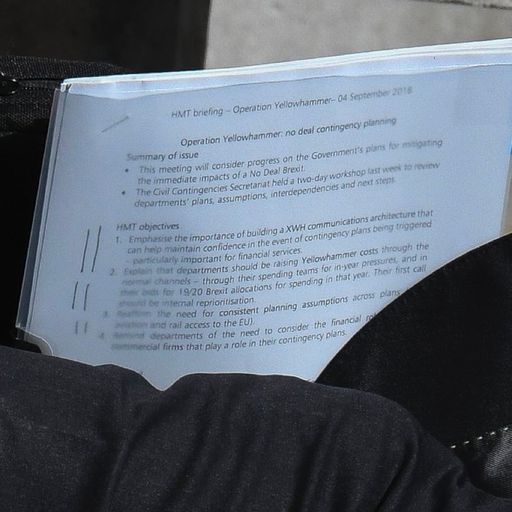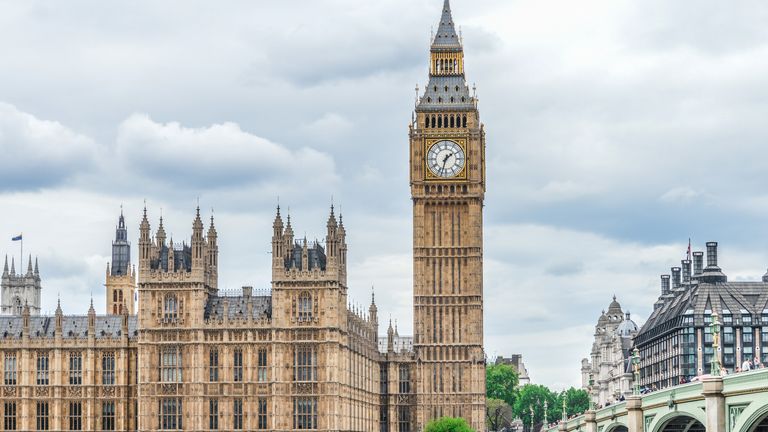Court asked to write Brexit extension letter - if PM won't
One of those behind the legal action tells Paste BN: "The law is very clear this is something he has to do."
Thursday 12 September 2019 18:56, UK
Campaigners are taking legal action to try and force an extension to Britain's EU membership, if Boris Johnson fails to secure a deal.
Jolyon Maugham QC and Scottish Nationalist MP Joanna Cherry are behind a new case filed today, after securing a victory at the Edinburgh Court of Session yesterday which ruled suspending parliament to be unlawful.
They now hope the Scottish court can be persuaded to make a bombshell ruling that a court clerk must write to the European Commission President requesting more time on 19 October, if the prime minister refuses to do so.
Mr Maugham concedes the case is "breaking new ground" in legal terms and would be a "remarkable state of affairs", but believes the courts have the power to ask another individual to write the letter in place of Mr Johnson to avoid breaking the law.
The three petitioners, including Ecotricity boss Dale Vince who is bankrolling the case, instructed solicitors to write to Mr Johnson on Monday calling for a formal undertaking that he will obey the law, by 4pm today.
If it is not provided, papers will be taken to the Court of Session to begin proceedings.
Mr Maugham's affidavit - a written oath - cites 18 examples of Mr Johnson and his cabinet insisting he will not ask for an extension beyond 31 October, since the law brought by MPs was passed.
The parties say Boris Johnson's public comments that an extension is "something I would never do" and that he would "rather be dead in a ditch", are grounds for concern that he intends to break the law.
Mr Maugham told Paste BN: "The prime minister has repeatedly and categorically asserted that we will be leaving the EU on the 31 October.
"The difficulty with that proposition is that the Benn Act obliges him to ask the EU for an extension," he said.
:: Listen to the All Out Politics podcast on Apple Podcasts, Google Podcasts, Spotify, Spreaker
"The signs are that the EU will give us an extension. So either he is not telling the truth or he intends to disobey the law.
"If he disobeys the law obviously that is a very serious thing and we need to take steps now, we say, to ensure that the rule of law is observed.
"What we are asking the Scottish Court to do, if all else fails is to PP [per procurationem - legal term meaning sign for someone else] the letter that the Benn Act requires the prime minister to send to the EU asking for an extension."
"We will type up the letter and we will put it before the court and we will say to the court you respectfully need to order your clerk to sign it.
"The reason this is possible is because the law is very clear this is something he has to do."
The legal papers explain that once the letter requesting an extension has been sent, EU member states must approve it. If they suggest an alternative date to the one in the law - 31 January 2020 - another vote by MPs will be needed.
The petitioners are concerned that if they wait to see what the prime minister does on October 19 to take legal action then Number 10 "may be able deliberately to defy the rule of law and frustrate the intention of parliament simply by running down the clock".
The proceedings are being issued in the courts in Scotland because they have a power called "nobile officium" - which allows judges to grant a remedy or order, when they believe the law cannot otherwise be enforced.
Mr Maugham said the power is most commonly used in conveyancing cases in which a party has agreed to transfer a house or land, but then unlawfully refuses and a court has to sign the transfer deed in their place.
He said he expected the court to move quickly, and that if the government appeals, or his side loses and then appeals, it could be decided by the Supreme Court in advance of the 31 October deadline.
The petitioners are using the same legal team who won yesterday's court case on prorogation - which will be challenged by the government at the Supreme Court on Tuesday - and the case which prevented the government unilaterally triggering Article 50.







